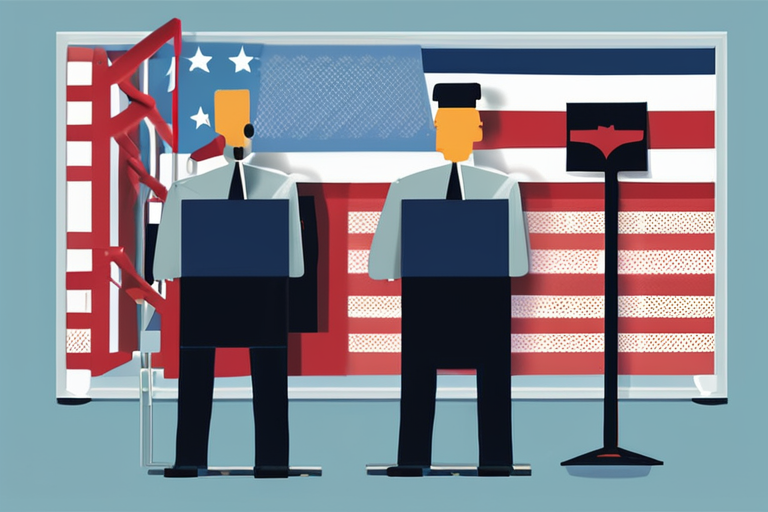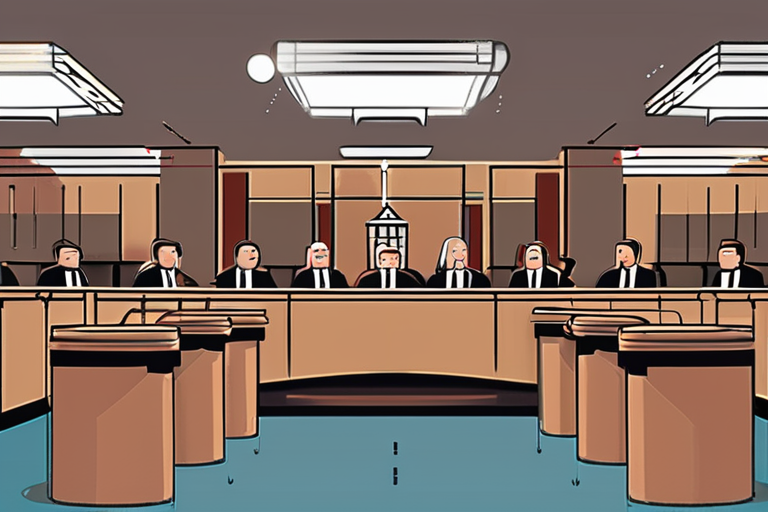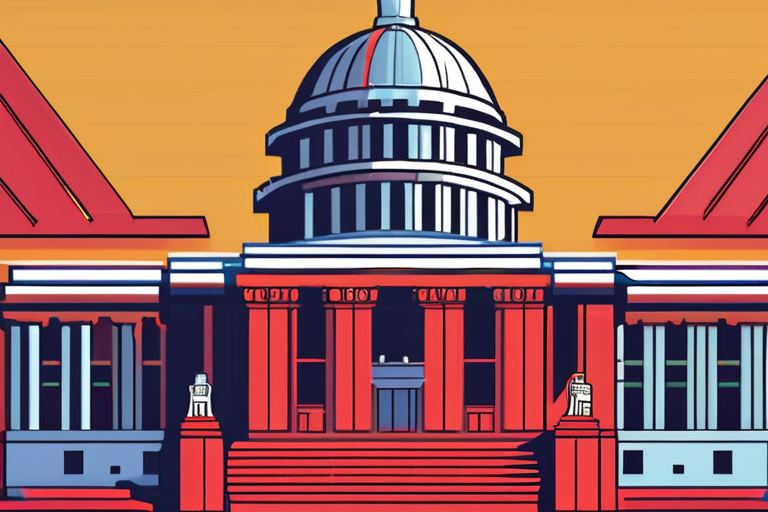Voting Rights on the Chopping Block: Supreme Court to Hear Landmark Case
The US Supreme Court is set to hear oral arguments Wednesday in a case that could potentially dismantle a crucial provision of the 1965 Voting Rights Act, leaving minority voters vulnerable to discriminatory practices.
At stake is Section 2 of the landmark legislation, which requires states and localities to ensure people of color have an equal opportunity to elect representatives of their choice. The section has been instrumental in curbing discriminatory voting practices over the past six decades, particularly in former Confederate states where Jim Crow laws once dominated.
The case, Shelby County v. Holder, is a direct challenge to Section 2 by Republican-led Alabama officials who argue that the provision is no longer necessary and unfairly burdens local governments. "This is an opportunity for us to revisit this outdated law and ensure that it's not stifling innovation in our state," said Alabama Attorney General Steve Marshall.
However, civil rights groups and Democratic lawmakers are sounding the alarm, warning that dismantling Section 2 would have far-reaching consequences. "If we allow states to gerrymander districts and disenfranchise voters of color, we're essentially rolling back the progress made since the Civil Rights Act," said Rep. Sheila Jackson Lee (D-TX).
The Voting Rights Act was a response to the systemic disfranchisement of African Americans in the South during the Jim Crow era. Section 2 has been instrumental in preventing discriminatory voting practices, including gerrymandering and voter ID laws.
While some argue that the provision is outdated and burdensome, others contend that it remains essential for protecting minority voters' rights. "The Voting Rights Act has been a cornerstone of our democracy, ensuring that all citizens have an equal voice in our elections," said Sen. Mitch McConnell (R-KY), who has expressed concerns about the potential impact on states' sovereignty.
The Supreme Court's decision is expected to be handed down later this year, with far-reaching implications for voting rights across the country. As the nation waits with bated breath, one thing is clear: the future of Section 2 and the Voting Rights Act hangs in the balance.
Background
The Voting Rights Act was signed into law by President Lyndon B. Johnson on August 6, 1965, in response to widespread disfranchisement of African Americans in the South. The landmark legislation aimed to ensure that all citizens had an equal opportunity to participate in the electoral process.
Section 2, in particular, has been instrumental in preventing discriminatory voting practices, including gerrymandering and voter ID laws. Over the past six decades, it has helped foster the creation of districts where communities of color can elect candidates of their choice.
Additional Perspectives
While some argue that Section 2 is outdated and burdensome, others contend that it remains essential for protecting minority voters' rights. "The Voting Rights Act has been a cornerstone of our democracy, ensuring that all citizens have an equal voice in our elections," said Sen. Mitch McConnell (R-KY).
However, civil rights groups and Democratic lawmakers are sounding the alarm, warning that dismantling Section 2 would have far-reaching consequences. "If we allow states to gerrymander districts and disenfranchise voters of color, we're essentially rolling back the progress made since the Civil Rights Act," said Rep. Sheila Jackson Lee (D-TX).
Current Status
The Supreme Court is set to hear oral arguments Wednesday in Shelby County v. Holder, a case that could potentially dismantle Section 2 of the Voting Rights Act. The decision is expected to be handed down later this year, with far-reaching implications for voting rights across the country.
As the nation waits with bated breath, one thing is clear: the future of Section 2 and the Voting Rights Act hangs in the balance.
*Reporting by Motherjones.*



 Hoppi
Hoppi

 Hoppi
Hoppi

 Hoppi
Hoppi

 Hoppi
Hoppi

 Hoppi
Hoppi

 Hoppi
Hoppi











